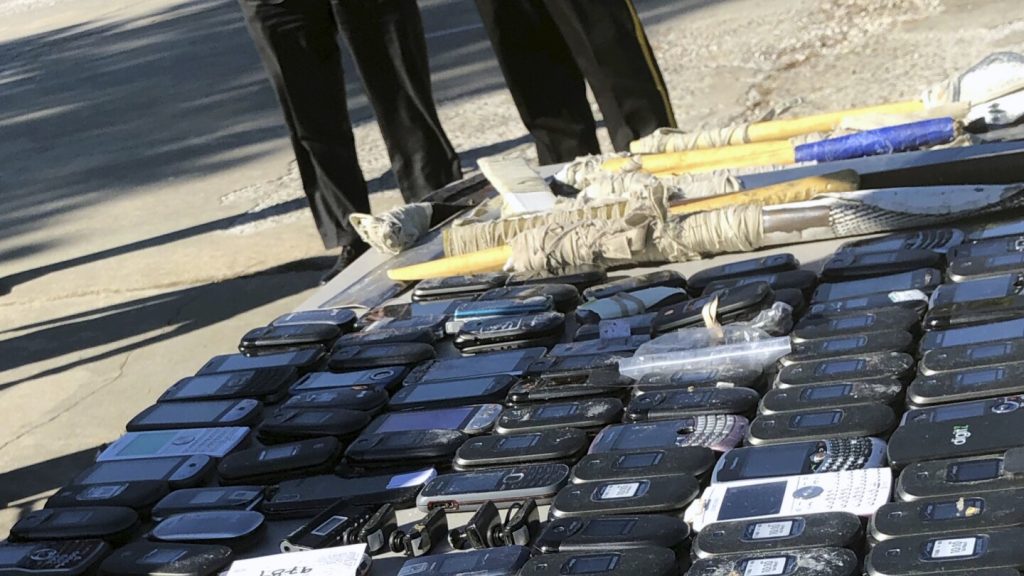Livingston, a former supervisor at Broad River Correctional Institution in South Carolina, was indicted on 15 charges related to accepting bribes and providing contraband cellphones to inmates. She worked with an inmate named Jerell Reaves to facilitate the illegal activities, with prosecutors alleging that Livingston accepted over $219,000 in bribes over a three-year period. Reaves, who is serving a 15-year sentence for voluntary manslaughter, was known as Hell Rell while Livingston was referred to as Hell Rell’s Queen. Both face potential prison time, fines, and orders to repay the money earned illegally if convicted.
The issue of contraband cellphones in South Carolina prisons has been a longstanding problem, with inmates using the devices for illegal activities such as drug trafficking and ordering killings from behind bars. The state’s Corrections Director, Bryan Stirling, has expressed frustration over the situation and has pushed for measures to address it. Despite efforts to block unauthorized cellphone signals and identify devices on prison grounds, funding limitations have hindered the implementation of more comprehensive solutions. Stirling has called for stricter penalties for possessing illegal cellphones in prisons, including potentially adding extra time to an inmate’s sentence.
A 2018 riot at Lee Correctional Institution that resulted in the deaths of seven inmates was attributed to the presence of contraband cellphones. Stirling emphasized the need to hold individuals like Livingston accountable for jeopardizing the safety of inmates, staff, and the community. He stressed that the state will not tolerate prison employees bringing contraband into facilities and commended efforts to address the issue. Despite the challenges posed by the prevalence of cellphones in prisons, authorities continue to work towards finding effective solutions to prevent their use by inmates.
With measures like identifying unauthorized cellphones and issuing violations for possessing banned communication devices, the South Carolina prison system has been actively combatting the issue of contraband cellphones. However, the request to jam cellphone signals in prisons has not been granted by federal officials, leading to continued challenges in eliminating the problem. Stirling has advocated for legislative changes to specifically address the illegal possession of cellphones in prisons and increase penalties for offenders. Efforts to address the issue have been ongoing, but more support and resources are needed to effectively combat the use of contraband cellphones by inmates.
The case involving Livingston and Reaves highlights the ongoing challenges faced by prison authorities in controlling contraband items like cellphones within correctional facilities. The indictment of a former security supervisor for accepting bribes and providing illegal items to inmates sheds light on the complexities of maintaining security and order in prisons. As the state continues to grapple with the issue of contraband cellphones and their implications for prison safety, there is a need for comprehensive strategies and resources to effectively address the problem. The incident serves as a reminder of the importance of vigilance and enforcement measures in preventing the smuggling of unauthorized items into prisons and ensuring the security of inmates and personnel.


